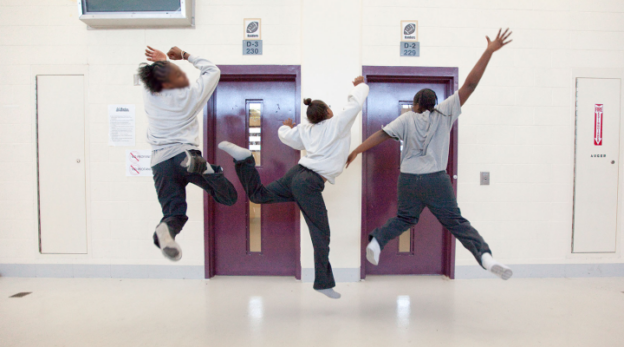This training will give you a solid foundation for understanding adolescents’ anatomical, physiological, and emotional development. It will also provide an introduction to the juvenile justice system and encourage you to get to know more about how the system operates in your community. And it will introduce tools and best practices for adapting yoga for system-impacted youth and show you simple yoga practices that non-yoga teachers can implement.
The training consists of five parts:
- Basics of adolescent development
- Overview of the development of the teenage brain
- Trauma and its effects on adolescents
- Introduction to youth corrections and systems
- Adapting yoga for system-impacted youth
Each part contains a guided, self-paced online lesson with curated reading, videos, podcasts, image galleries, and research assignments. Each topic is supported by writing assignments to help integrate the content and provide opportunities for self-reflection.
Who should attend?
This training is for anyone who would benefit from:
- Perspective on the current state and the historical roots of our juvenile justice system.
- Awareness of the changes that occur during adolescence.
- Practice guiding short brain breaks or movement breaks for youth.
- Yoga teachers who are interested in adapting their classes for youth who are incarcerated or otherwise system-impacted.
This training isn’t just for yoga professionals; it’s also for:
- Anyone working in prison or jail as staff or as part of a community-based or non-profit organization.
- Lawyers, therapists, social workers, addiction counselors, teachers, and other people who work with adolescents and/or whose work is in or intersects with the juvenile justice system.
- People interested in bringing about a more effective and humane approach to addressing crime, addiction, and mental health in our communities.
What should I expect?
- 30 hours of self-paced study
- 8 hours of virtual meet-ups
- A discussion forum to share questions, insights, and experiences with others in the training
- Access to PYP literature (downloadable PDF)
When can I start?
We will post the dates when the next round is confirmed.
How much does it cost?
We are offering a tiered-pricing model:
- Benefactor – $595
- Supporter – $495
- Community – $395
For people who can afford to pay a little more, the extra you give covers part of the cost for those who cannot.
For those with constrained finances, we also offer a limited number of scholarships. Scholarship applications are evaluated based on economic need, identification with a group disproportionately impacted by trauma and incarceration, and the likelihood of applying the knowledge and skills learned in service to your community. You can find the scholarship application here.
What this training is not:
This program is not yoga teacher training. If you intend to facilitate longer yoga practices with youth, we recommend that you have at least 200-hour yoga teacher training or the equivalent. Prison Yoga Project offers one, which you can learn more about here.
If you would like to further develop your skills for teaching long practices for youth or are interested in becoming an RCYT (Registered Children’s Yoga Teacher), we recommend training offered by Yoga Ed.
We also strongly recommend PYP’s Foundational Training for an in-depth perspective on incarceration, the trauma that contributes to incarceration, and how yoga aligns with restorative justice and supports trauma healing.
Prison Yoga Project offers financial assistance for all our training to ensure they are accessible for everyone regardless of income or financial circumstances.


